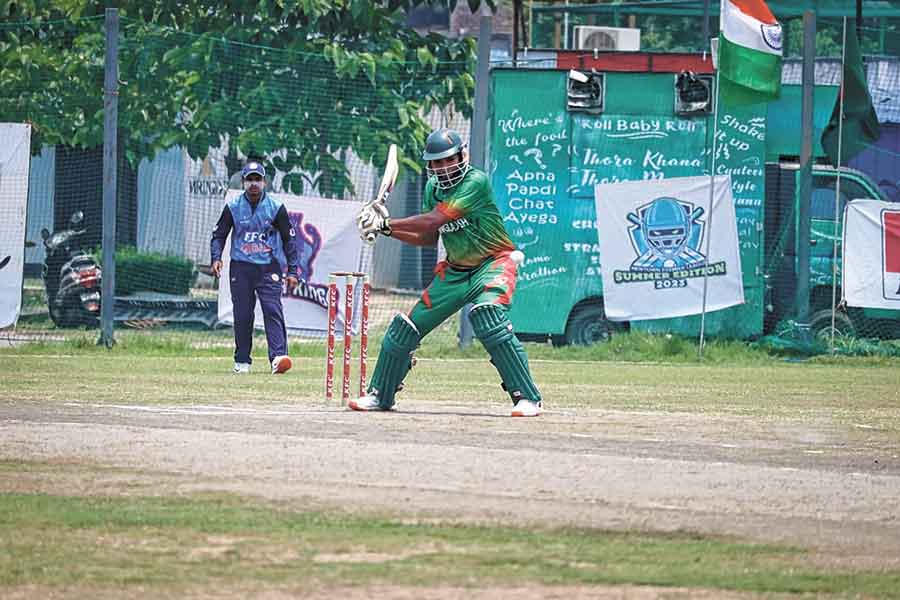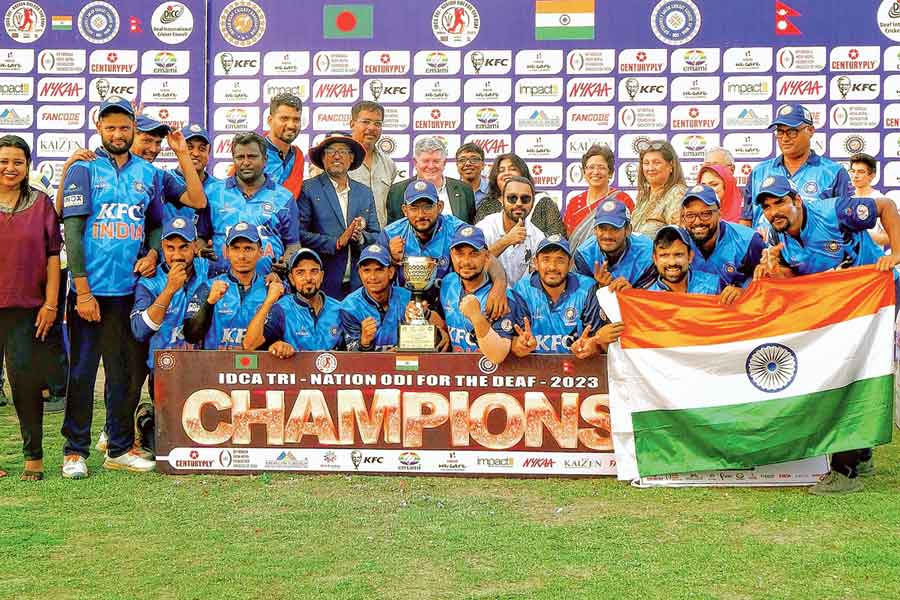Imagine the batsman not being able to shout to the runner to take another run between the wickets. Imagine not being able to shout “Howzzat!” to the umpire. Imagine not being able to hear the audience roar when you hit that winning six or scalp a prize wicket.
Such are the challenges of “deaf cricket” but then the Indian Deaf Cricket Association (IDCA) recently ensured even the hearing impaired got a chance to play cricket, and that too at the international level.
The “IDCA tri-nation ODI for the deaf 2023” was held a few weeks ago featuring India, Bangladesh and Sri Lanka. The final match was between India and Bangladesh at Merlin Rise -The Sports City, that can be approached through Chinar Park.
Action time
Both the teams displayed their best abilities and the audience seemed hooked. Rules of the game were more or less the same but players had to have a minimum of 55 decibels of hearing loss to be eligible.
There were certain additions to the game to create a level playing field for all but a conspicuous silence loomed over the field at most times. The players weren’t allowed to wear hearing aids and so the entire match was dependent on non-verbal means of communication — sign language, body gestures, facial expressions and most importantly, eye contact.
The high dependency on vision made the players move their heads much more than in a game of regular cricket. Since the runner or batsman couldn’t communicate verbally they kept looking between the ball and their partner to ensure accuracy. The appeals from the fielding side took a visual form with the wicket- keeper and bowler raising their arms in the air and mouthing the word “Howzzat” without any sound. The umpires were trained to spot players making such silent appeals.
In the finals, India scored 293 runs in 35 overs, losing eight batsmen while Bangladesh was all out in 25 overs, scoring a total of 127. The winning Indian captain, Sai Akash, 27, was declared the player of the match.” The “best batsman of the series” award went to Akib Mahamud of Bangladesh while Kuldeep Singh of India was named the “best bowler of the series” and “player of the series”.
Bangladesh’s Akib Mahamud was feted for scoring the “fastest 50”. Umar Ashraf from India was declared the best wicket-keeper while Prathviraj Shetty of India was awarded for taking the highest number of wickets in the tournament. Indians Sai Akash and Akash Singh were awarded for hitting “super sixes” and being the “best fielder of the series respectively.
Since the sound of applause would not be audible to the players, spectators raised their open palms in the air and rotated them multiple times, as the equivalent in sign language.
“We are overjoyed to lift the title and are grateful to IDCA for organising and BCCI for supporting this event. India generally tends to neglect its disabled spectrum but such an event is pure joy for us,” said Sai Akash, through an interpreter.
Bangladeshi captain Emon Shariar said they wanted the world to come forward and support the hearing impaired, not just in cricket but for their daily existence too.

The India-Bangladesh match in progress
Words of support
The chief guest at the closing ceremony was acting deputy British high commissioner to Calcutta, Peter Cook. “I am glad to support this event and celebrate the importance of equality and diversity in sport. I am delighted to meet these able players and watch their performances on the field. Enabling full participation amongst our society is an important signal that there are no barriers — all are welcome,” he said.
All the while an interpreter translated Cook’s speech in sign language for the players to follow.
Former cricketer Shib Shankar Paul was a guest of honour.
“IDCA is delighted to be hosted in Calcutta, which is one of the venues for the IPL too. We are excited that this tournament generated public awareness and goodwill for deaf cricket,” said Sumit Jain, president, IDCA.
